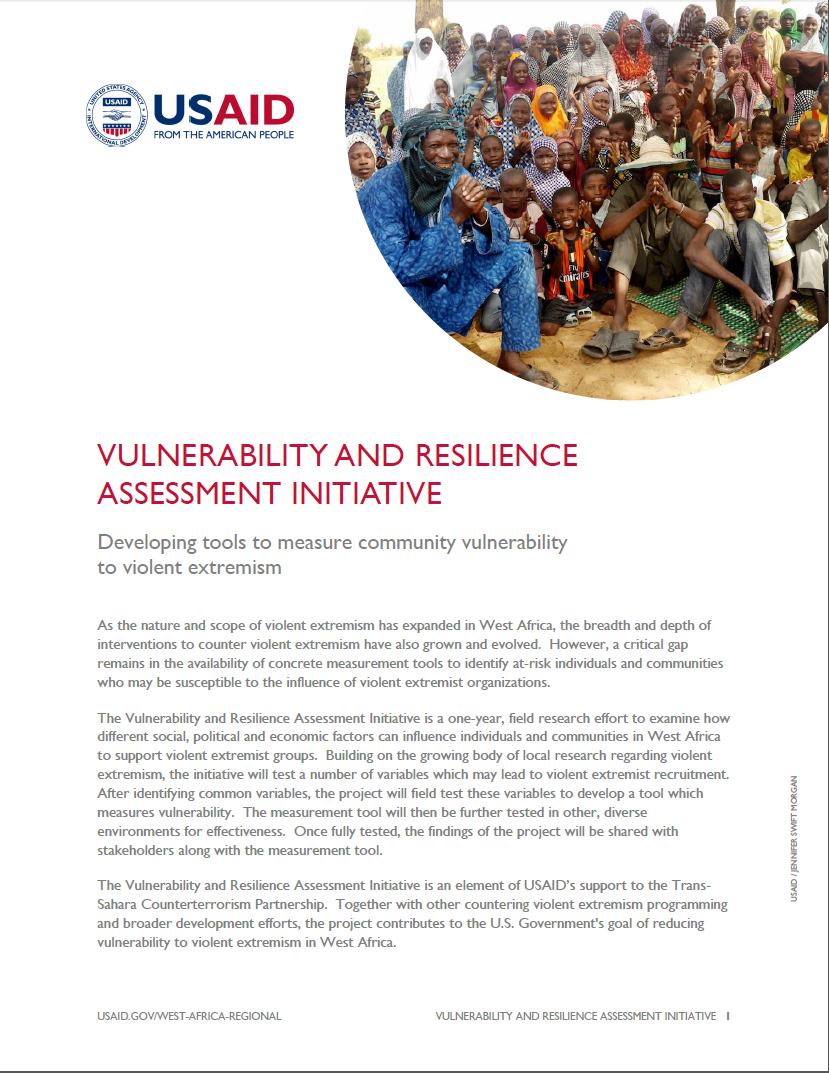Developing tools to measure community vulnerability to violent extremism
As the nature and scope of violent extremism has expanded in West Africa, the breadth and depth of interventions to counter violent extremism have also grown and evolved. However, a critical gap remains in the availability of concrete measurement tools to identify at-risk individuals and communities who may be susceptible to the influence of violent extremist organizations.
The Vulnerability and Resilience Assessment Initiative is a one-year, field research effort to examine how different social, political and economic factors can influence individuals and communities in West Africa to support violent extremist groups. Building on the growing body of local research regarding violent extremism, the initiative will test a number of variables which may lead to violent extremist recruitment. After identifying common variables, the project will field test these variables to develop a tool which measures vulnerability. The measurement tool will then be further tested in other, diverse environments for effectiveness. Once fully tested, the findings of the project will be shared with stakeholders along with the measurement tool.
The Vulnerability and Resilience Assessment Initiative is an element of USAID’s support to the Trans-Sahara Counterterrorism Partnership. Together with other countering violent extremism programming and broader development efforts, the project contributes to the U.S. Government's goal of reducing vulnerability to violent extremism in West Africa.
Project Objectives
- Develop a set of tested, replicable and scalable approaches that identify social, political and economic factors that can identify a community’s vulnerability to violent extremist influence.
- Teach the new approaches identified through the project to countering violent extremism practitioners in the region such as non-governmental and civil society organizations, key national and local government officials, USAID staff, and community leaders.
- Assure that the new tools that are identified and shared are gender sensitive and promote a “do no harm” approach.
Project Activities
- Conduct regional studies to identify key factors that can influence recruitment by violent extremists.
- Engage with key community leaders and civil society organizations to verify the conclusions of the studies and deepen the understanding of the recruitment factors.
- Based on the knowledge gained from the studies, begin developing a proven and scalable tool that can identify vulnerable communities.
- Test the tool with select communities that are exposed to violent extremist influence so as to better isolate and identify risk factors.
- Pilot the tool in a variety of diverse environments to gauge its effectiveness.
- Widely share the results and the lessons learned from the project with stakeholders.
Program Information
Goal: Test new approaches for mitigating against violent extremism
Life of Program: September 2016 to September 2017
Total USAID Funding: U.S. $500,000
Geographic Focus: Diffa and Tillaberi regions of Niger and the Sahel region of Burkina Faso
Implementing Partner: Mercy Corps








Comment
Make a general inquiry or suggest an improvement.